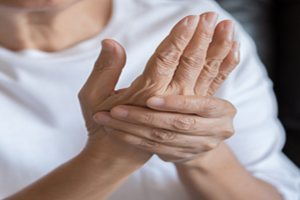Osteoporosis is a problem that too many people are facing today. It is a condition that causes the bones to become weak and fragile. The condition can sometimes lead to serious health problems, including fractures.
Several things can increase your risk of developing osteoporosis. These include being female, having a family history of the condition, over 65, and having a small frame.
In today’s article, let’s explore what you should know about osteoporosis and how it might affect you. Here’s what you need to know:
What are the Symptoms of Osteoporosis?
Pain is one of the main things people complain about when it comes to this condition. This can range from mild, intermittent pain to severe, chronic pain that limits your ability to perform everyday activities. Other symptoms of osteoporosis include:
- Decrease in height
- Hunched posture
- Loss of muscle mass
- Fragile skin
- Easy bruising
- Slow healing of cuts and bruises
- Joint pain
- Bone fractures
What Causes Osteoporosis?
A loss of bone density causes osteoporosis. This can happen for a variety of reasons. For the most part, osteoporosis is more common with age because your bone density begins to decline as you age.
Other risk factors for osteoporosis include:
- Family history
- Eating disorders
- Having a small body frame
- Being female
- Menopause
- Lack of exercise
- Smoking
- Excessive alcohol consumption
- Having a diet that lacks calcium and vitamin D
- Taking certain medications (such as steroids, anticonvulsants, and certain drugs for cancer)
How is Osteoporosis Diagnosed?
Osteoporosis is a silent disease because it can happen without any symptoms. The only way to diagnose osteoporosis is with a bone density scan. This scan uses low-dose X-rays to measure the density of your bones.
Can Osteoporosis Be Treated?
Unfortunately, there are no known cures for osteoporosis, but they can be treated. Treatment options include lifestyle changes, medications, and surgery.
Lifestyle changes that can help treat osteoporosis include getting enough calcium and vitamin D, exercising regularly, and quitting smoking—treating osteoporosis often involves taking medications like bisphosphonates and denosumab.
Surgery is sometimes necessary to treat osteoporosis. A hip replacement is the most common type of surgery that can help with this condition.
Although this is a severe condition, many people with osteoporosis can live long, healthy lives with proper treatment.
How to Prevent Osteoporosis?
You can do many things to prevent osteoporosis or keep it from getting worse. These include getting enough calcium and vitamin D, exercising, and avoiding tobacco and excessive alcohol use.
- Calcium is vital for strong bones. It is the most abundant mineral in the human body and plays a crucial role in many physiological processes. Without calcium, bones would become brittle and susceptible to fractures.
- Vitamin D is essential for our bones. It helps our bodies absorb calcium, which is necessary for bone growth and health. Vitamin D also helps prevent osteoporosis, a condition in which bones become weak and fragile. There are many ways to get vitamin D, including exposure to sunlight, certain foods, and supplements. Many people, however, do not get enough vitamin D and may need to take supplements to ensure they get enough.
- One of the best ways to prevent osteoporosis is to engage in strength training. This exercise can help improve bone density and reduce the risk of fractures. Strength training can be performed using weights or resistance bands, and it’s essential to focus on all major muscle groups.
Taking steps to prevent osteoporosis can help you keep your bones healthy and reduce your risk of fractures.
The Bottom Line
Osteoporosis is a condition that causes bones to become weak and fragile. It can affect people of all ages but is most common in older adults. You can do many things to reduce your risk of developing osteoporosis or slow its progression if you have it. One of the most important things you can do is to learn as much as you can about the condition.
If you are looking for an osteoporosis doctor in New Jersey, we can help you. At the Center for Arthritis and Osteoporosis, Dr. Adenwalla and her team adopt the finest treatment procedures and diagnostic modalities to manage disease states. We understand that living with Arthritis and autoimmune diseases can be an extremely stressful experience. We work to support our patients in their journey from pain to recovery with compassion and care. Contact us today to learn more and request an appointment online!



